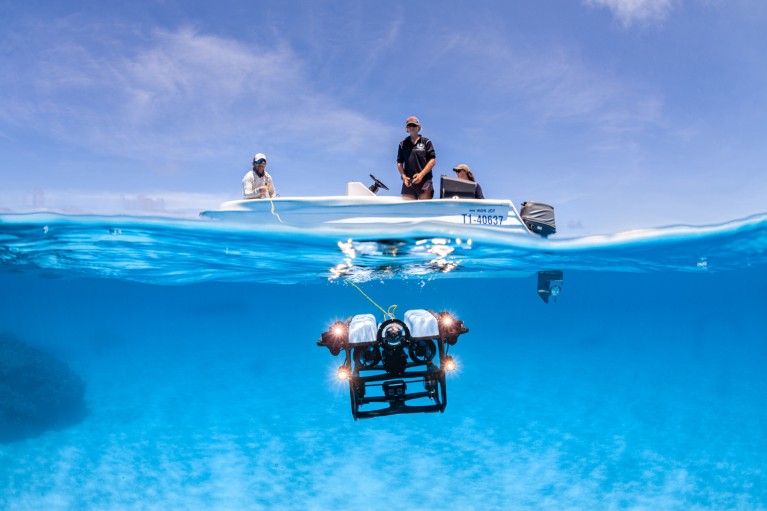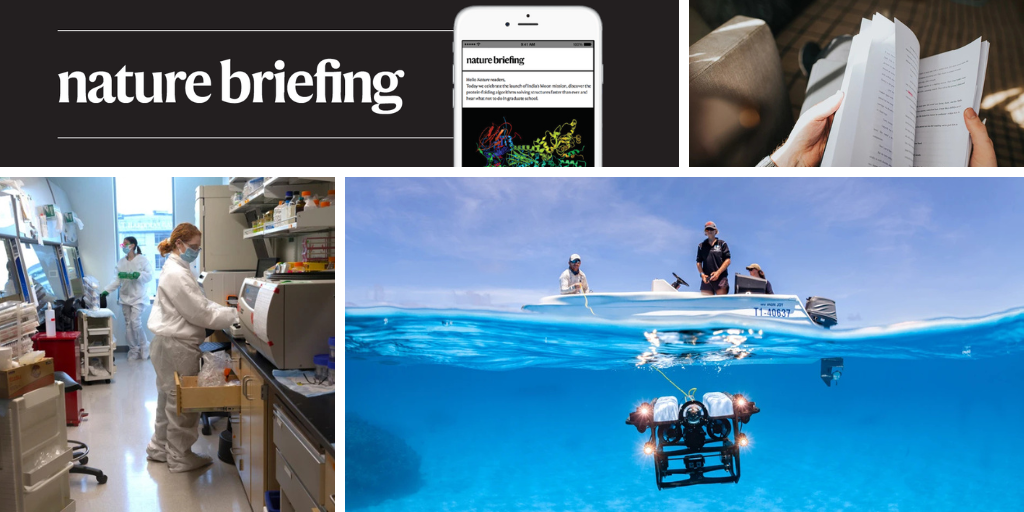You have full access to this article via your institution.
Hello Nature readers, would you like to get this Briefing in your inbox free every day? Sign up here.

Trials suggest that offering payment can increase the chance of a researcher agreeing to review, and in some cases speed up the process. Credit: Catherine Falls Commercial/Getty
Two journals have released data from their own experiments that suggest that offering payments of around US$250 to researchers who review manuscripts speeds up the process, without affecting the quality of reviews. A six-month experiment at Critical Care Medicine, led by clinical scientist David Maslove, found that the motivating effect on reviewers was small. That might be down to “these other values that peer reviewers have, whether it’s a sense of responsibility or loyalty or owing to society”, says Maslove. At Biology Open, payment speeded up reviews so much that the journal is rolling it out more widely. But some specialists warn that the practice could have unintended consequences for science and publishing.
Reference: Critical Care Medicine paper & bioRxiv preprint (not peer reviewed)
Data from more than 200,000 drivers working for the ridesharing company Lyft in Florida suggest that racial profiling plays a role in traffic citations and fines. Researchers found no detectable differences in speeding or traffic violations between white drivers and a group that included Asian and Pacific Islander, Black, and Hispanic drivers. But minority drivers were 33% more likely to be cited for speeding and paid 34% more money in fines.
Read more: Lyft data help to overcome the limitations of standard police datasets, write computational social scientist Dean Knox and political scientist Jonathan Mummolo in their accompanying Perspective article. (Science | 8 min read)
Features & opinion
Lucas Joppa and Elizabeth Willmott were once the principal architects of Microsoft’s carbon-negative commitment, and have influenced more than US$1 billion in activities related to carbon reduction and removal. “Although we have a deep conviction that net zero can work, we know it has issues,” they write. “A premature desire for perfection, overly precise guidelines for implementation, insufficient flexibility in carbon accounting, unhelpful constraints on collaboration and a disproportionate focus on the actions of others all combine to slow down the net-zero transformation just when it needs to speed up.” They outline six roadblocks to decarbonization, and how to overcome them.
Where I work

Gemma Galbraith is a marine ecologist at James Cook University in Townsville, Australia.Credit: Victor Huertas/Hoey Reef Ecology Lab
Coral reefs that thrive deep beneath the surface are relatively understudied, says marine ecologist Gemma Galbraith. “An analogy would be a botanist not studying any sections of the plant below the ground.” In this photo, Galbraith is surveying reefs in Australia using a remote operated vehicle equipped with a camera. Her husband and colleague, Ben Cresswell, is holding the tether and skipper Casey Castro is steering the boat. “It’s a challenge when you’re floating in the middle of nowhere getting sunburnt and dehydrated. Sometimes, seabirds land on Ben’s head,” she says. “Afterwards, you can reset, shoo away the birds and get some electrolytes. We haven’t lost a robot yet.” (Nature | 3 min read) (Victor Huertas/Hoey Reef Ecology Lab)
On Friday, Leif Penguinson was paddling in a creek near the road from Kabul to Salang Pass, in Afghanistan. Did you find the penguin? When you’re ready, here’s the answer.
Thanks for reading,
Flora Graham, senior editor, Nature Briefing
Want more? Sign up to our other free Nature Briefing newsletters:
• Nature Briefing: Careers — insights, advice and award-winning journalism to help you optimize your working life
• Nature Briefing: Microbiology — the most abundant living entities on our planet — microorganisms — and the role they play in health, the environment and food systems
• Nature Briefing: Anthropocene — climate change, biodiversity, sustainability and geoengineering
• Nature Briefing: AI & Robotics — 100% written by humans, of course
• Nature Briefing: Cancer — a weekly newsletter written with cancer researchers in mind
• Nature Briefing: Translational Research — covers biotechnology, drug discovery and pharma


